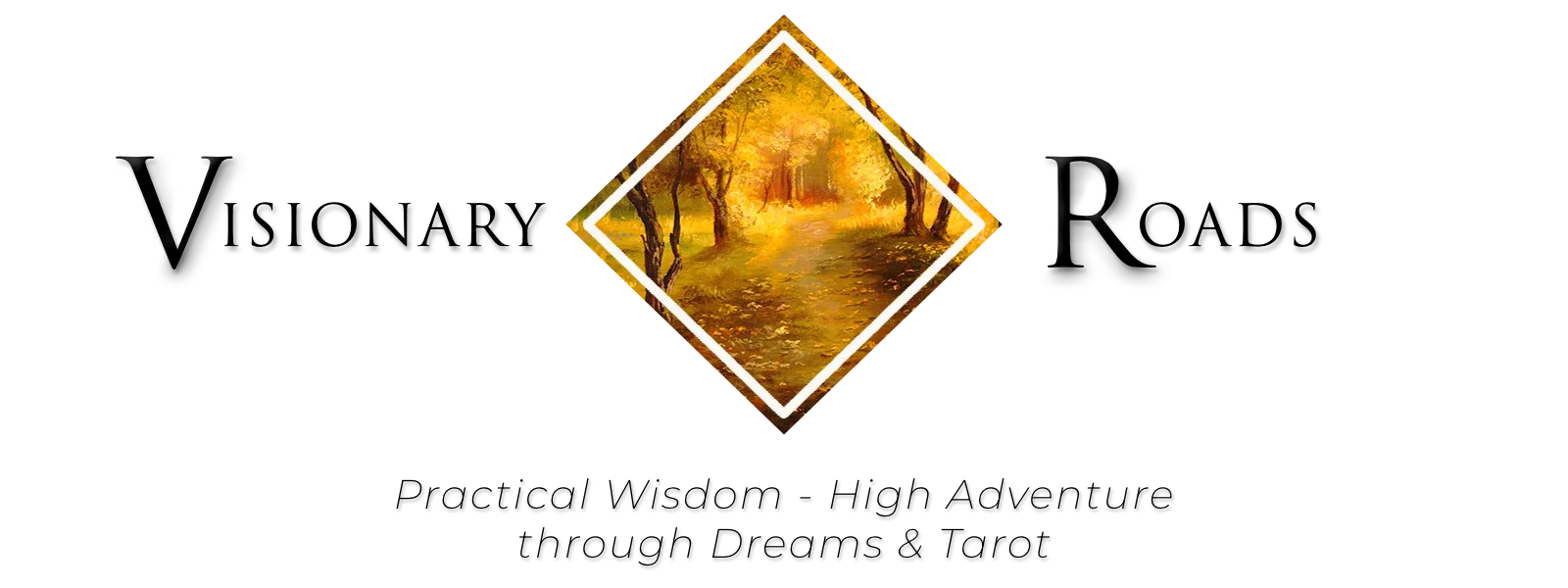Imagination: Browser for the Cosmic Web

Imagination is key to the deep exploration of human meaning. Unfortunately, the scope of imagination is often limited in contemporary American culture. It is seen as the domain of fantasy and problem-solving, as a source of artistic inspiration, and as a view into a personal psychological spaces. While each of these are important ways in which imagination can be used, they are not the limit of possibilities for imagination. Indeed, imagination may be one of the most versatile tools we have. The ability to imagine circumstances differently from what we experience through the senses is a gateway to broadening our sense of reality, and a tool for helping to create meaningful connections with what lies beyond that gateway.
There is much beyond our own personal psychic space that can be accessed through the imagination. The imaginal realms of individuals and cultures thoroughout time and space; worlds adjacent, within, and beyond our usual ordering of time and space; the interconnected aspects of of our own identity that extend into entirely different senses of reality than we usually experience. If this piques your curiosity, you may ask, “How does that work? How can the thing I use to create art and fantasy help me to experience another reality?” When discussing a concept that may be unfamiliar to someone, analogies are a common tool to bridge the gap between familiar everyday experiences and a new idea.
With the near ubiquity of mobile devices and internet access, it has become somewhat commonplace for an individual to use and interact with at least some of the vast amount of resources on the internet. Those who have been introduced to the internet know they have to use a kind of software and screen interface to have access to websites. The most general purpose software applications for accessing internet sites are called web browsers—things like Firefox, Chrome, and Safari. We shop online at Amazon, read news on news sites, engage in online banking, use search engines like Google, watch videos on YouTube, post pictures on Instagram and Facebook, and a thousand other uses, all through the interface of a web browser. We may also use specialized applications (apps) built with similar ideas to focus our experience. Even if a particular person only accesses a handful of websites or services, most people have a least a general awareness that there is much, much more out there—more than any one person can comprehend.
This familiar use of web browsers can be a useful metaphor for the imagination, one that may be well-suited for a contemporary audience. Like earlier technological analogies of “tuning in” via radio or television, the web browser carries with it the idea of “accessing something happening at a distance”, while also being accessible “right here” yet unseen without the aid of technology. We can watch or listen to a podcast in our home, for example, knowing that it was created in another city at another time, but invisible to the senses until we use the right tool to access it. Once it is accessed, it creates a kind of blended experience of immediate, embodied sensation through the sights and sounds of something created “elsewhere” yet “right here”.
Taking this analogy one step further, if we use the imagination only for fantasy or problem-solving, we potentially limit our vision of what it can access. It may be we see the imagination as a specialized app that can only access a handful or certain types of websites and services. It is equivalent using my web browser only to access YouTube and Amazon, then saying those are the only websites (or kinds of websites) that exist. It limits my perceptions of the world if I come across a website that has inspiring poetry or recipes for a fantastic meal. I might think, “Wow, that’s not a very good shopping site. This doesn’t even make sense. The words are in a strange order, there are some reviews, that’s familiar…but you can’t even buy anything! I’m just going to ignore this.”
In a similar way, if I have only been using imagination to fantasize and problem-solve, when anomalous information shows up (such as in a dream or meaninful coincidence) I may preclude such information from usefulness, or even possibility. I may ignore the information rather than examine the potentials it conveys. I close out the website before examining what it may be offering because it is different than what I am used to. While YouTube and Amazon may have important functions for us, they certainly are not all there is on the internet—not by a long shot. To discover this for ourselves, however, we must be willing to click a few links, dig for website addresses, talk to others about how they use their browsers and what websites they visit, and generally take the time to explore what it is a browser can really do. We must go in and have the experience of encountering something new and different than what we are used to. What we encounter may show up on the same screen as our fantasies—and maybe even use similar images—but what it may convey can be quite different than what we have previously experienced.
To draw the analogy further, a web browser is not at all limited by the websites it accesses. In fact, it is the other way around: Websites can only communicate what a particular web browser is capable of displaying, and may be affected by the limits of the communication link. Say a given website is sending a large, high-quality video with millions of colors and layers of audio. If our browser can only display sixteen colors, a few hundred pixels, and an audio range of two octaves with a couple of the notes missing over a slow connection, we may get the general gist of what the video is presenting. However, there is a load of information that we are not experiencing, as we can only experience through the capabilities that our browser has. That high-definition video may come through as a choppy, cartoon-ish version of what it could be.
In a similar way, individual imagination has the potential to access more than one can comprehend, yet it will be limited to the “images” it has in its system. It represents the information it receives based the sensations and stories it has experienced. With a limited set of images, a particular imagination can only display so much. This, I feel, is a common source of confusion when wanting to explore the capabilities of imagination. Sometimes I may use the same image for fantasy, problem-solving, and to represent a character in a dream linked to my physical health. It takes practice and discernment to home-in on what the image is trying to convey. Add into this mix that there may be shared cultural stories and images (and possibly images that we inherit at a genetic/ancestral level), imagination is a very personal affair. No two embodied human beings are likely to have exactly the same life experiences or bank of images to draw from, so we must seek to understand what images our personal psyches hold.
This part of the analogy addresses the situation of two people who might encounter the same stream of information and yet imagine it quite differently. Say one person has a mathematically-inclined imagination: an encounter with a non-human being may appear to be a geometric, polyhedral intelligence that communicates through tones of sound. For another person living amongst visual art of shining and winged divine messengers, they may encounter the same information as a singing angel. Neither is intrinsically a more true representation of the information or the encounter: The imaginal representations are in a form that the particular person has the potential to comprehend. They each experience what their browser is set up to display. It is quite possible that there is much more information that is not displayed, based on the configuration and capabilities of their browser, the imagination.
These are conditional limits, though: As one expands and refines one’s sensations and stories, one is able to access more and more through the imagination. That is, the mathematically-inclined imagination, once exposed to angelic artwork may begin to perceive and communicate through a larger set of “images”. They may begin to perceive the experience in a new way, with new dimensions. This deeper understanding of what images we hold, and the expansion of those images, allows us to have a richer experience ripe with new meaning.
One very natural way to deepend and expand the imagination is through actively engaging with dreams. Dreams are a playground in which we may expand, refine, and transform the images we hold, as well as access new “websites and services”. There will still be the familiar processing of daily and life events, wish-fulfillment and fantasy excursions, and productive problem-solving. However, with dedication and a sense of adventure, one may approach dreams with a curiosity that there may be more present. In this playground of dreams, the imagination may soften its usual boundaries and encounter something truly novel. Working with the images in dreams can reveal great treasures of meaning, power, and usefulness that go well beyond our individual lives.
There is a caveat, of course. Just like, “I read it on the internet so it must be true,” reflects a lack of discernment, opening up to a wider concept of imagination requires discernment. Not everything that appears to the imagination is a representation of another reality, and how it may appear is often based on stories we can understand. It may take time and loving effort in combination with reason and intuition to work with some images. It may be useful to share and gather input from others who have different sensations, stories, and symbol systems, and thus possibly expanding our browser’s capabilities. Indeed, a community linked through imagination can be deeply meaningful. If you would like to explore this expanded use of the imagination with others in a safe and supportive atmosphere where you can share and receive new stories, consider attending an Active Dreaming circle or workshop.
By approaching imagination as a web browser for the cosmic web, we expand our ability to experience deep personal meaning. Furthermore, we expand our ability to offer help to others by accessing a larger pool of resources and information.
[image credit: Ryky]
Revised November 18, 2023

